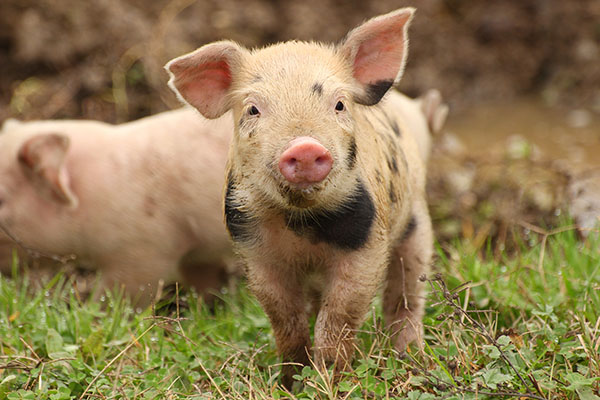Among the non-human animals that can be infected with—and become sick from—humans who have the SARS-CoV-2 virus that causes COVID-19 are deer, mink, hyenas, pigs, ferrets, dogs, cats, and primates such as rhesus macaque monkeys, baboons, and grivets. Infected pigs, however, are less susceptible to the effects of this virus and do not transmit SARS-CoV-2 to other pigs, and animal scientists from Iowa State University in the United States may have discovered why. See also: Artiodactyla; The COVID-19 pandemic; Virus

A recent study aimed to improve our understanding of how SARS-CoV-2 causes disease and spreads beyond humans. It also focused on developing animal models using the angiotensin-converting enzyme 2 (ACE2), which is the host-cell receptor for SARS-CoV-2. Reporting in the journal Cell Death Discovery, scientists inoculated (infected) cultured human and porcine respiratory epithelial cells with SARS-CoV-2. The study demonstrated the expression of ACE2 receptor and SARS-CoV-2 binding on the epithelial lining of both human and pig respiratory cells, indicating that both cell types are susceptible to infection. Early post-infection, however, the pig cells began to undergo a controlled form of cell death known as apoptosis. In contrast, infected human cells showed delayed cell death, allowing the virus to propagate within the cells and then spill out to infect other cells. Based on these results, the researchers propose that early cell death of infected cells is the self-limiting mechanism for why pigs are resistant to showing symptoms of COVID-19 and transmitting the virus. The discovery of this possible molecular mechanism could be valuable for developing new therapeutic treatments for COVID-19. See also: Apoptosis; Cell (biology); Cell culture; Coronavirus; Enzyme; Enzyme inhibition; Epithelium





